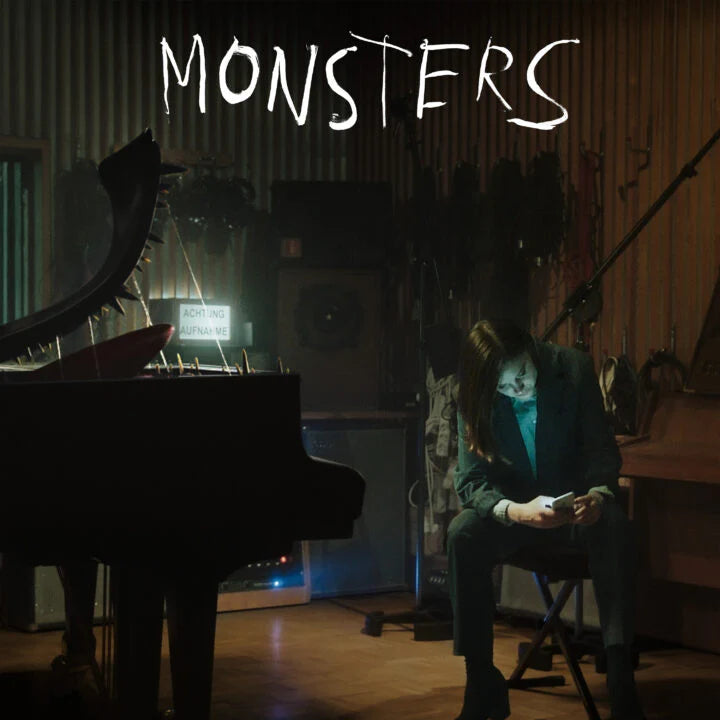Kennedy’s creative approach has always been unusual. Growing up in Germany after her family emigrated from Baltimore, she developed an ear for off-centred songcraft picking through her mum’s record collection: Whitney Houston and Simon & Garfunkel at first, Karen Dalton and the Velvet Underground later. With no equipment to hand, she started recording audio on a camcorder, given to her on her sixteenth's Birthday, blurring the lines between music and her other passion, film. She’d video herself singing and playing the piano, and would later process the sounds into something close to a pop song. “It was a weird way of producing music, because I didn’t know how to record myself,” she remembers. “Then, I just carried the camera with me wherever I went, documenting practically my whole life, sitting at the piano, writing Songs and making weird little soundscapes and voice-overs for my own little films. Maybe that is why my music sometimes seems to have this kind of cinematic approach.”
Obsessed with the work of John Cassavetes and 70s horror films like Carrie, Kennedy moved to Hamburg to study film and ended up making music for theatre productions. Her involvement in the local creative community led her through the doors of the “Golden Pudel”, a techno nightclub on the grounds of a former smugglers’ prison near the Norderelbe river. Immersed in Hamburg’s dance music scene and a regular at the “Pudel”, she met Mense Reents, a musician best known for his work with the celebrated house act, Die Vögel. The pair formed a writing and production partnership, and would make Sophia’s eponymously-titled debut record together in 2017.
The album was released through DJ Koze’s label Pampa and became an overnight sensation, a surprise hit, nobody knew where she came from and where to put it musically, but people obsessed over it. The album received a glowing Pitchfork review - featuring on their ‘top electronic albums of 2017’ list - while The Cut declared it “the most exciting pop album out this year that you’ve probably never heard of.”
Forming another project called Shari Vari alongside with Helena Ratka, DJ and producer based in Hamburg, they released their debut Album „Now“ in autumn of 2019.
“Now it’s always about going one step further”. One step further is where Kennedy has taken her sound on Monsters. It’s full of hints of a former life, abstract melodic turns, instrumentation that shouldn't work, but does, wrongness that’s right. For Kennedy, though, the album’s biggest transgression is allowing the songs more liveliness and coincidences to happen in both music and textures - not correcting out of tune and wobbly instrumentation and melodies later, keeping supposed mistakes as they are. “A lot of ideas can come out when I’m writing a song: sometimes I’m looking for flow; sometimes I'm looking for ways to destroy it,” Where “Seventeen” is acid-washed Americana with creeping sub-bass, closer “Dragged Myself Into The Sun” is a full-on left hook, drones stacked like lasagna and pumped with steroids. “(“Dragged Myself…”) puts heavy, drone metal guitar over this jazz piano song - but it’s really hidden, so you don’t really know where it’s coming from.” There is pop centre pieces like “Cat On My Tongue” and “I Can See You” and the velvet-lined anthem “I’m Looking Up”, dealing with grief and death, recalling the rawest edges of Krautrock and, for Kennedy, nods to Baltimore artists Panda Bear and the strange currencies of Animal Collective.
Baltimore, Kennedy has found, plays an odd kind of role in her music, and it’s perhaps what gives it such a feeling of melodic and sonic duality. “I always go there in my mind when I'm making music, not to the city in particular, but to the conflict of growing up far away as a kid,” she says of the wistful nostalgia of “Seventeen”. “I can barely speak English properly anymore - but having that American accent in my voice when I sing, it’s the feeling that that’s the part of me that’s still there.”

